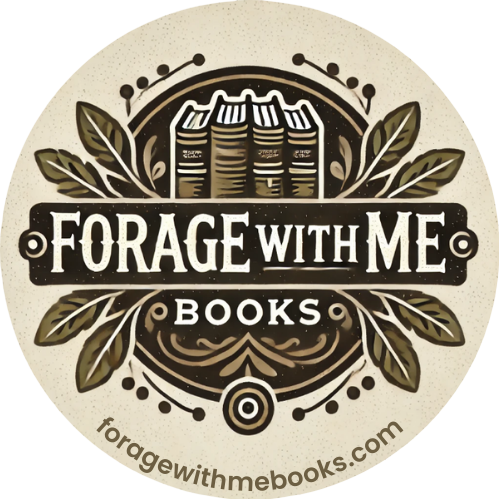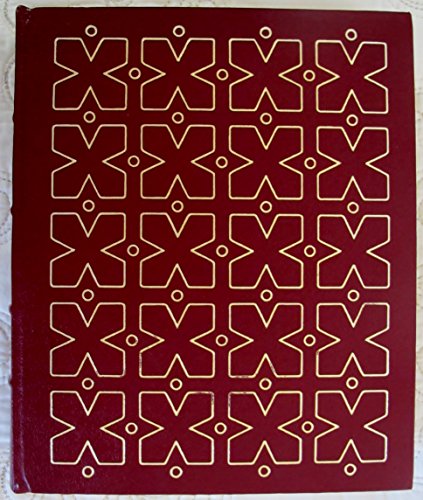Fyodor Dostoevsky vs Leo Tolstoy: A Deep Dive into Two Giants of Russian Literature: Influential Works, Philosophy, and the Shared Human Struggle
Quick Biographies and Essential Reading
Fyodor Dostoevsky (November 11, 1821 – February 9, 1881)
A pioneering voice in psychological fiction, Dostoevsky drew on personal upheavals—including a mock execution and Siberian exile—to probe guilt, freedom, faith, and moral responsibility in 19th-century Russia.
Famous works:
Notes from Underground (1864)
Crime and Punishment (1866)
The Idiot (1869)
Demons/The Possessed (1872)
The Brothers Karamazov (1880)
Leo Tolstoy (September 9, 1828 – November 20, 1910)
Tolstoy fused epic historical sweep with intimate realism, later embracing a philosophy of ethical simplicity and nonviolence that influenced global movements.
Famous works:
War and Peace (1869)
Anna Karenina (1878)
The Death of Ivan Ilyich (1886)
Resurrection (1899)
Hadji Murad (posthumous, 1912)
Picture this: you're browsing through a dusty estate sale, and suddenly you stumble upon first editions of Crime and Punishment and War and Peace sitting side by side on the same shelf. Your heart skips a beat: not just because of their monetary value, but because you're holding in your hands two of the most profound explorations of the human condition ever committed to paper. These aren't just books; they're entire universes crafted by two Russian giants whose names have echoed through literary halls for over a century.
But here's the fascinating thing: Fyodor Dostoevsky and Leo Tolstoy, despite being contemporaries wrestling with similar existential questions, approached the human experience from remarkably different angles. It's like having two master painters work from the same model: one captures the soul's torment in dark, psychological brushstrokes, while the other paints sweeping landscapes of society and human nature in brilliant, naturalistic detail.
The Literary Titans and Their Masterworks
Let's start with what put these writers on the literary map. Dostoevsky's most influential works read like a psychological thriller catalog: Crime and Punishment (1866), The Brothers Karamazov (1880), The Idiot (1869), and Notes from Underground (1864). Each one digs deep into the human psyche, exploring themes of guilt, redemption, and the clash between faith and reason.
Tolstoy's heavyweight champions paint on a much broader canvas: War and Peace (1869), Anna Karenina (1878), and the jewel we'll dive deep into later: The Death of Ivan Ilyich (1886). These works don't just tell stories; they create entire worlds where individual lives intersect with historical forces, social structures, and moral questions.
The Great Divide: Two Approaches to Human Truth
Here's where it gets really interesting. Dostoevsky was the master of internal storms: his characters live in a state of perpetual psychological crisis. Think about Raskolnikov in Crime and Punishment, tormented by guilt and philosophical justifications for murder. Dostoevsky believed that reason, tainted by human egotism, couldn't guide us to truth. Instead, he championed a kind of blind, transformative love rooted in Orthodox Christian faith as the path to redemption.
This approach has deep roots in Eastern Orthodox mysticism, where the heart's wisdom often transcends rational thought. The Orthodox tradition emphasizes theosis: the process of becoming like God through divine grace: which subtly permeates Dostoevsky's narratives of spiritual transformation.
Tolstoy, on the other hand, was the chronicler of external realities. His characters exist within intricate social webs, shaped by history, family, and societal expectations. Where Dostoevsky wrote about the soul's dark night, Tolstoy celebrated the physical world: the smell of fresh earth, the beauty of changing seasons, the texture of lived experience. His later turn toward Christian anarchism and nonviolent resistance reflected his belief that authentic moral living required engagement with the world, not escape from it.
Style as Substance: How They Crafted Their Worlds
You can actually feel the difference when you're reading them with a cup of tea in hand (preferably from a used copy with margin notes from previous readers: there's something magical about inheriting someone else's literary journey).
Dostoevsky's prose crackles with immediacy. His world operates on crisis time: characters can "come home one evening and suddenly find an axe buried in their skull," as one critic noted. Every page turns with the tension of impending catastrophe, and his dialogue reads like philosophical debates where souls hang in the balance.
Tolstoy's writing unfolds like a vast landscape painting. He takes time to describe the way sunlight filters through leaves, how snow crunches underfoot, or the subtle social dynamics at a dinner party. His phrases like "as is usually the case" anchor readers in the rhythms of ordinary life, creating that sense of total immersion that makes you forget you're reading fiction.
The Shared Thread: Wrestling with Meaning
Despite their different approaches, both writers grappled with the same fundamental question: How should we live? They both experienced profound spiritual crises and sought answers through their art. Both understood that suffering: whether psychological or social: was central to the human experience.
But here's the crucial difference: Dostoevsky saw suffering as primarily internal and spiritual, requiring a leap of faith for resolution. Tolstoy viewed suffering as largely social and moral, demanding practical action and ethical living in community with others.
This distinction reflects two different streams of Christian thought: the mystical, contemplative tradition that emphasizes inner transformation, and the social gospel tradition that emphasizes worldly engagement and justice.
A Love Letter to "The Death of Ivan Ilyich"
Now, let me tell you about why The Death of Ivan Ilyich deserves a special place on your bookshelf: and not just any bookshelf, but that special corner where you keep the books that have genuinely changed how you see the world.
This novella, barely 100 pages long, packs more existential punch than novels ten times its length. It's Tolstoy at his most focused and profound, stripping away the epic scope of his major works to examine one man's confrontation with mortality and the meaninglessness of life.
Ivan Ilyich is the quintessential everyman: a judge who has lived a life that society considers successful. Good job, from a proper family, with a respectable social standing. But when a minor injury leads to a mysterious illness, his carefully constructed world crumbles. What unfolds is perhaps the most honest examination of death and the fear of meaninglessness ever written.
What makes this work so extraordinary is how Tolstoy refuses to offer easy comfort. Ivan's journey toward understanding isn't mystical or dramatic: it's painfully ordinary and absolutely universal. The famous opening line, "Ivan Ilyich's life had been most simple and most ordinary and therefore most terrible," hits like a punch to the gut because it forces us to examine our own lives.
The novella's genius lies in its devastating honesty about how we avoid confronting life's fundamental questions until crisis forces our hand. Ivan realizes that his pursuit of social approval and material success has cost him authentic connection: with others, with meaning, with his own soul. It's only in his final moments, when he stops struggling against death and accepts it, that he experiences something resembling peace.
For anyone interested in analog wisdom and deep thinking, this book operates like the ultimate commonplace book entry: it distills profound insights about life, death, and meaning into crystalline prose that rewards multiple readings. I keep margin notes in my copy, tracking how my understanding deepens with each encounter. There's something about returning to physical books that digital reading can't replicate: the way your past self's annotations dialogue with your present understanding creates layers of meaning that accumulate over time.
The Legacy: Why These Giants Still Matter
In our age of social media soundbites and algorithmic thinking, both Dostoevsky and Tolstoy offer something invaluable: depth, complexity, and the patient exploration of difficult questions. They remind us that great literature doesn't provide easy answers: it asks better questions and sits with the discomfort of uncertainty.
Their influence extends far beyond literature into psychology, philosophy, and social thought. Dostoevsky anticipated much of what we now understand about trauma, guilt, and the unconscious mind. Tolstoy's insights into nonviolence and authentic living influenced figures such as Gandhi and Martin Luther King Jr.
Finding These Treasures Today
Here at Forage With Me Books, we encounter writers regularly, sometimes in surprising editions that reveal new facets of their work. There's something special about finding a well-loved copy with previous readers' insights penciled in the margins, or discovering a beautiful hardcover edition with original illustrations that brings a new visual dimension to familiar stories.
The beauty of analog book collecting lies in the fact that each physical copy carries its own unique history. That first edition of Brothers Karamazov with the loose binding and coffee stains? It has been witnessed by countless readers wrestling with the same questions that tormented Dostoevsky himself. The annotated Anna Karenina with thoughtful margin notes comparing Levin's spiritual journey to Tolstoy's own? It becomes a conversation across time between readers seeking meaning.
Both writers understood something we're rediscovering in our digital age: depth requires time, patience, and the willingness to sit with complexity. In a world of quick takes and instant opinions, their works remind us that the most important question is: How should we live? What makes life meaningful? How do we face suffering and death?: don't have simple answers but reward lifelong contemplation.
Whether you're drawn to Dostoevsky's psychological intensity or Tolstoy's sweeping social vision, both offer what every serious reader craves: the sense that literature can be a form of spiritual and intellectual practice, a way of engaging with life's deepest mysteries through the most human of activities: storytelling.
Happy foraging, fellow seekers of literary wisdom!
As an Amazon Associate, Forage With Me Books earns from qualifying purchases made through links in this post. This comes at no cost to you.




